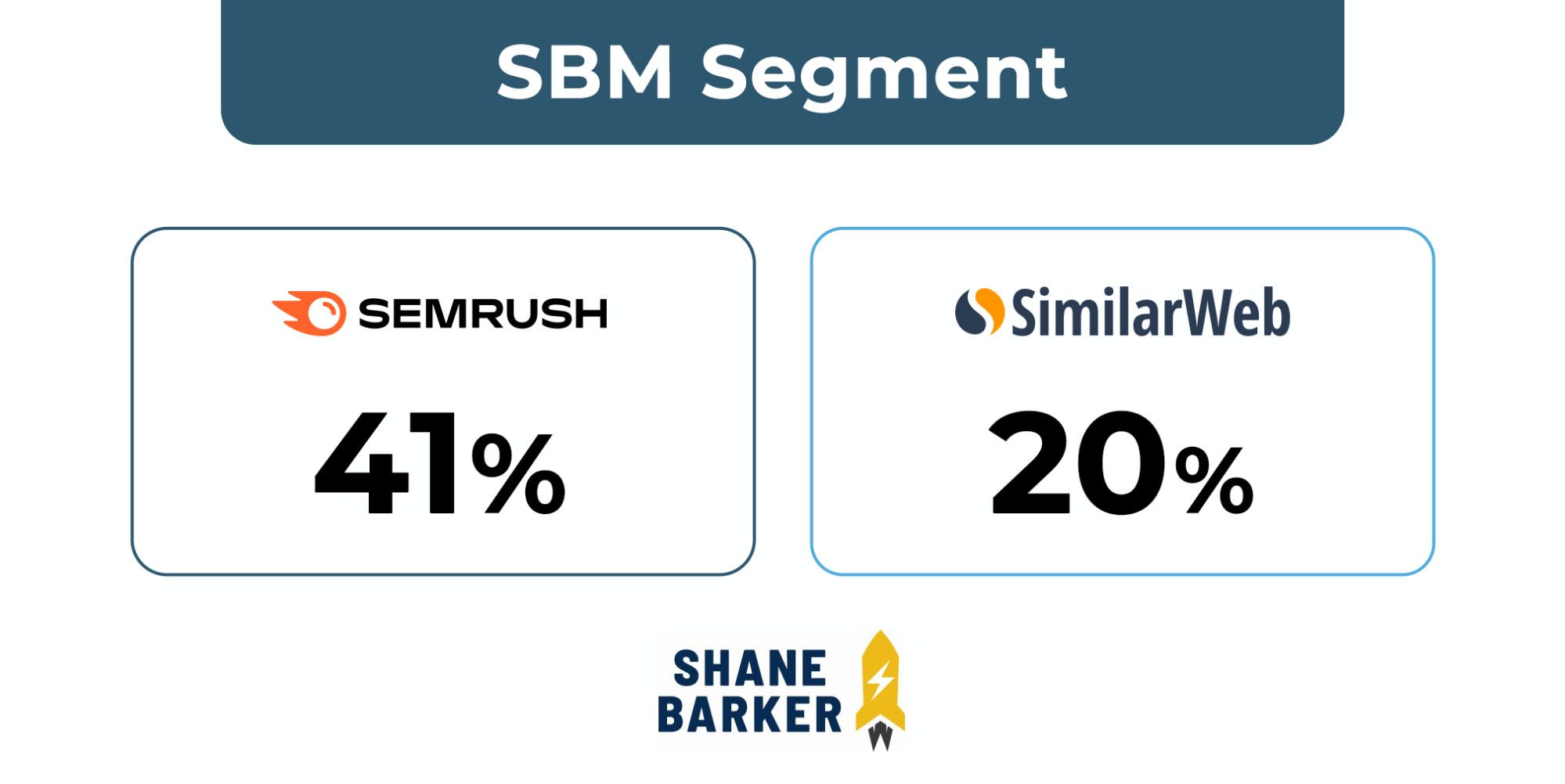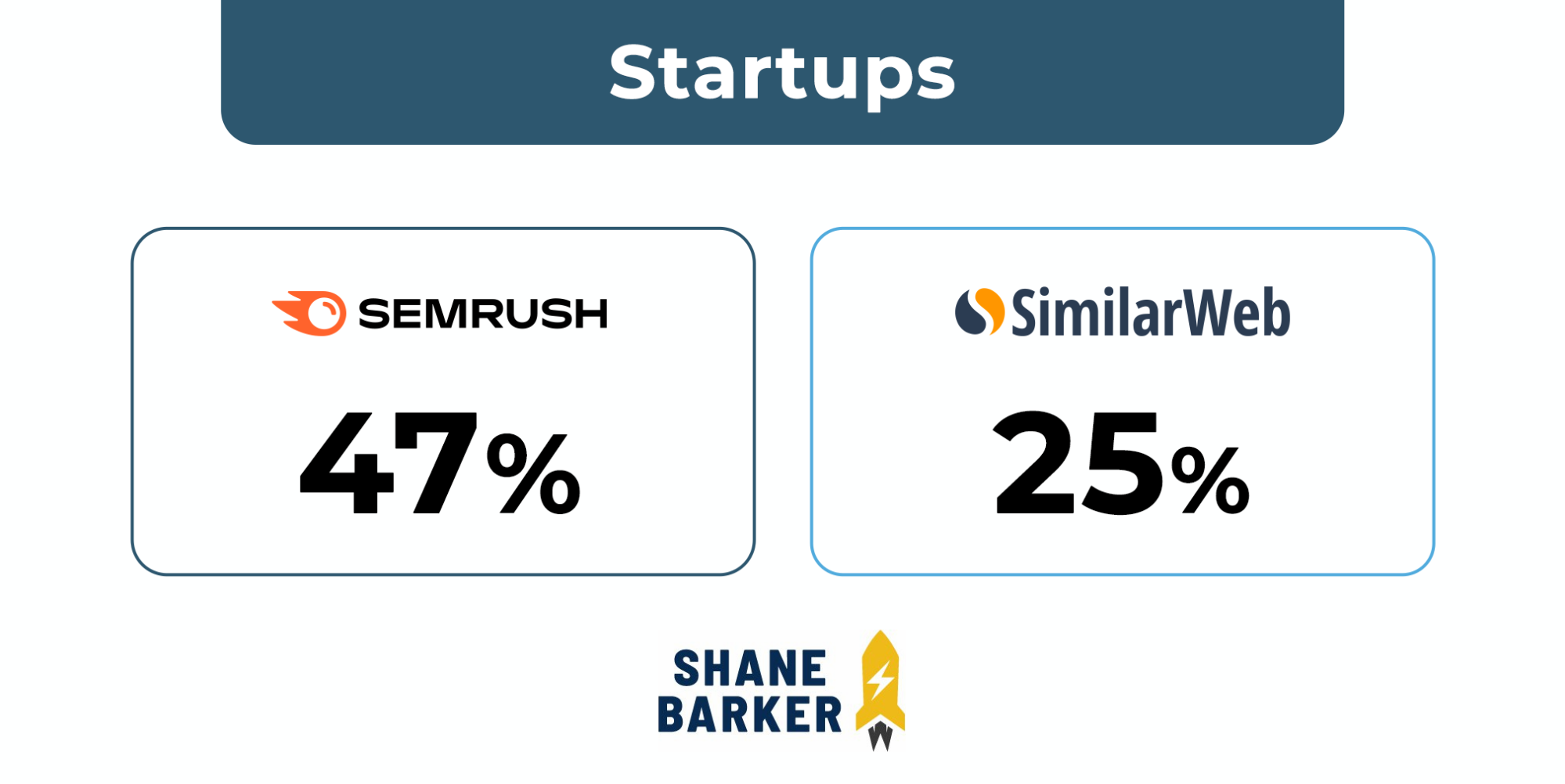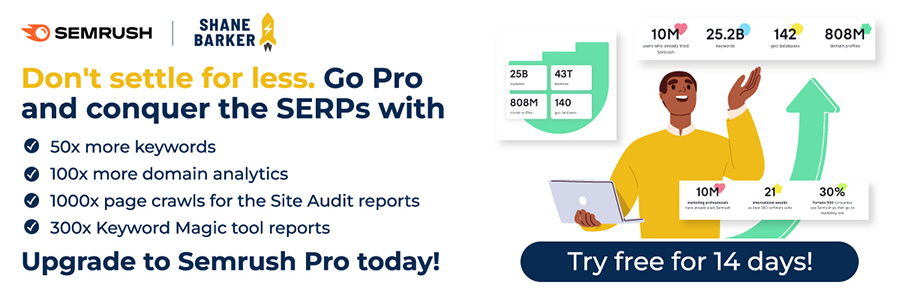Semrush recently upgraded its traffic data collection and processing model . The promise is that they now bring the most powerful market and competitive intelligence possible by not only working on the quality of traffic data but also the coverage.
So I’ve decided to see for myself if that’s indeed the case and explore how data coverage within the Semrush.Trends platform stacks up against one of the top industry players, Similarweb.
For the study, I’ve selected 6,000 websites that belong to companies within the SMB segment to explore which solution comes with the widest traffic data coverage across the panel.
The results speak for themselves: Semrush returns data for 41% of the websites, while Similarweb only covers 20%.

Defining SMBs
Small to medium-sized businesses come in different forms and shapes, so SMB definitions vary, especially from country to country.
So I’ve picked OECD as the organization whose definition can be applied to more or less the entire globe. Using OECD’s guidelines, I’ve set the following criteria to define SMB companies:
- Up to 500 employees
- From $500K to $10M in annual revenue
Taking company info from Crunchbase, I’ve managed to extract a fraction of sites – the exact 6,000 – that I analyzed for this study.
Now that we have all the housekeeping covered, let’s jump straight into the findings.
Who Gets the Lead Within the SMB Segment?
Out of the 6,000 analyzed sites, Semrush returned data for 41%, while Similarweb only covered less than a quarter.

So across the SMB segment, Semrush offers double the coverage compared to Similarweb.
You may rightfully claim that the SMB segment is a vast area, so maybe some industries get more attention than others. Say, established tech brands get more coverage than an emerging blog.
That’s exactly what I thought, so I've also separated the set into various verticals to assess the evenness of Semrush’s and Similarweb’s traffic coverage.
Assessing Traffic Data Coverage Across Verticals
Overall, these 6,000 websites fell into 47 categories, with 20 reflecting solid sets of data to analyze.
So here’s the comparison between the platforms’ coverage across 20 industries:
| # | Industry | Semrush_% | Similarweb_% |
|---|---|---|---|
| 1 | Software | 44.29% | 20.93% |
| 2 | Internet Services | 45.99% | 26.65% |
| 3 | Information Technology | 39.61% | 16.10% |
| 4 | Hardware | 33.07% | 11.11% |
| 5 | Media and Entertainment | 51.75% | 31.05% |
| 6 | Science and Engineering | 25.97% | 7.00% |
| 7 | Data and Analytics | 36.36% | 15.10% |
| 8 | Health Care | 31.13% | 16.24% |
| 9 | Financial Services | 46.01% | 18.17% |
| 10 | Mobile | 37.10% | 20.61% |
| 11 | Sales and Marketing | 36.46% | 15.34% |
| 12 | Commerce and Shopping | 55.90% | 35.93% |
| 13 | Education | 61.38% | 36.60% |
| 14 | Manufacturing | 29.62% | 10.26% |
| 15 | Consumer Electronics | 39.56% | 13.29% |
| 16 | Content and Publishing | 60.42% | 43.06% |
| 17 | Design | 44.95% | 22.30% |
| 18 | Advertising | 30.39% | 12.01% |
| 19 | Apps | 48.55% | 27.54% |
| 20 | Transportation | 39.56% | 16.85% |
1 Software
- Semrush : 44.29%
- Similarweb : 20.93%
2. Internet Services
- Semrush : 45.99%
- Similarweb : 26.65%
3. Information Technology
- Semrush : 39.61%
- Similarweb : 16.10%
4. Hardware
- Semrush : 33.07%
- Similarweb : 11.11%
5.Media and Entertainment
- Semrush : 51.75%
- Similarweb : 31.05%
6. Science and Engineering
- Semrush : 25.97%
- Similarweb : 7.00%
7. Data and Analytics
- Semrush : 36.36%
- Similarweb : 15.10%
8. Health Care
- Semrush : 31.13%
- Similarweb : 16.24%
9. Financial Services
- Semrush : 46.01%
- Similarweb : 18.17%
10. Mobile
- Semrush : 37.10%
- Similarweb : 20.61%
11. Sales and Marketing
- Semrush : 36.46%
- Similarweb : 15.34%
12. Commerce and Shopping
- Semrush : 55.90%
- Similarweb : 35.93%
13. Education
- Semrush : 61.38%
- Similarweb : 36.60%
14. Manufacturing
- Semrush : 29.62%
- Similarweb : 10.26%
15. Consumer Electronics
- Semrush : 39.56%
- Similarweb : 13.29%
16. Content and Publishing
- Semrush : 60.42%
- Similarweb : 43.06%
17. Design
- Semrush : 44.95%
- Similarweb : 22.30%
18. Advertising
- Semrush : 30.39%
- Similarweb : 12.01%
19. Apps
- Semrush : 48.55%
- Similarweb : 27.54%
20. Transportation
- Semrush : 39.56%
- Similarweb : 16.85%
Semrush beats Similarweb in each instance, on average providing double the coverage for all the verticals I’ve analyzed.
Now, what about websites that are almost fresh out of the oven?
A lot of new websites often get that N/A message when you’re trying to take a sneak peek at their traffic stats. And the less that message appears, the more valuable a solution you have at hand.
That’s why I’ve also decided to assess how quick each solution is when it comes to delivering traffic insights for newcomers.

Which Solution Offers More Traffic Insights on Startups?
To have a more accurate sample for newcomers, I’ve decided to focus on startups – up-and-coming brands whose websites are likely not that old.
With around 100 million startups opening each year and the fact that 40% of all publicly traded companies were once a startup, you may want (and need) to include these players in your market and competitive analysis.
So any serious traffic analytics tool has to have solid coverage on any newcomers as early as possible.

And in terms of data coverage for these startups, Semrush takes the lead once again, returning data for 22% more websites.
Wrapping Up
Of course, when assessing tools that deliver traffic intelligence, you should also consider accuracy.
There are plenty of other studies that stack Semrush up against Similarweb. On this matter, Owox BI has extensive research that compares various tools’ traffic data accuracy with real Google Analytics data. Their findings show that Semrush delivers more superior traffic insights for smaller websites.
It seems that from all perspectives – be it the entire SMB segment, various verticals, or startups – Semrush has an unbeatable lead in terms of both traffic coverage and accuracy. So at least when it comes to the SMB segment, we can put the good old Semrush vs. Similarweb debate to rest.
If you want a full Semrush vs. Similarweb comparison, you can go through my all-encompassing review.









Related Articles
What is Digital Marketing? Everything You Need to Know
Best Blogger Outreach Tool – 21 Tools to Minimize Your Outreach Efforts
33 Free Google Marketing Tools for Marketers and Developers
22 Best Online PR Tools to Build and Monitor Media Relations
Digital Marketing for Startups: The Strategies to Use in 2024